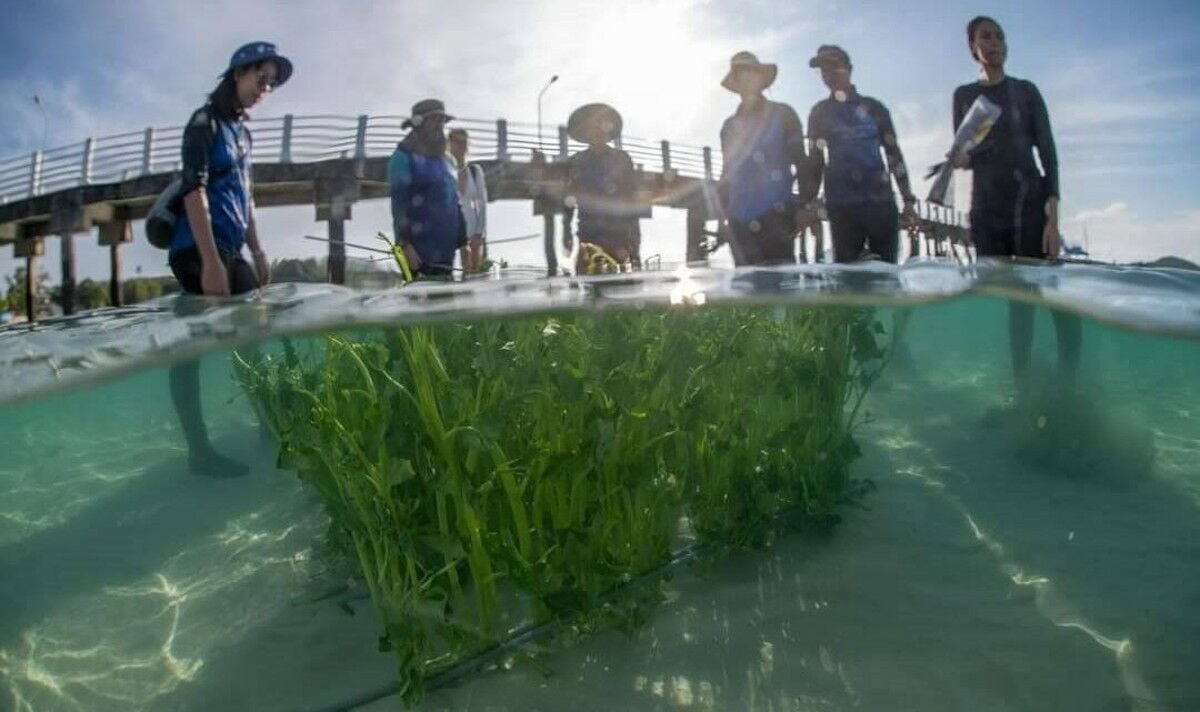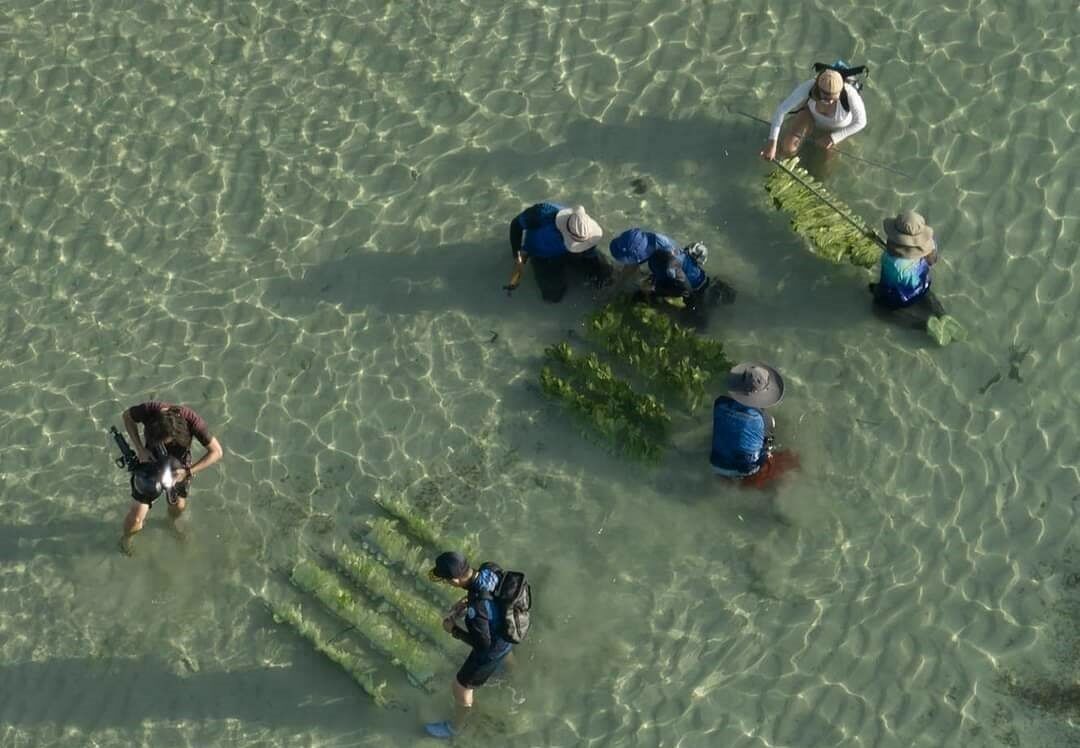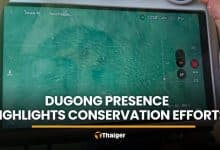Phuket project aims to save dugongs with new food plots

The Department of Marine and Coastal Resources (DMCR) in Phuket has initiated an experimental project to combat the decline of seagrass and provide supplementary food for dugongs. The project, currently underway on Rawai Beach, seeks to prevent the extinction of these marine mammals.
Experimentation began at the Upper Andaman Marine and Coastal Resources Research Centre, where they have established natural food plots near the Rawai Beach pier in Phuket’s Mueang district. The plots are placed strategically on either side of the pier during low tide, close to areas where dugongs typically forage, to encourage their interaction with the new food source.
Four food plots, each measuring 1 square metre, have been set up alongside the pier’s length. The plots contain different types of vegetables: morning glory, Chinese cabbage, kale, and bok choy. This diverse selection aims to determine which type of plant the dugongs prefer. Following the setup, researchers have utilised drones for observation during high tide to monitor dugong activity and their interaction with the food plots.
Initial observations have recorded a single dugong visiting the area. However, it did not consume any of the plants provided in the experimental plots. Despite this, the research centre remains committed to monitoring the project’s progress and refining methods to supplement the dugong’s diet amidst the ongoing seagrass degradation.
The centre will continue to track the results of the endeavour and develop strategies to enhance food sources for the dugongs during this critical period of seagrass deterioration.

By establishing this trial, the DMCR is tackling the urgent issue of seagrass decline, which poses a significant threat to the dugong population. Seagrass meadows are vital habitats for many marine species, including dugongs, which rely on them as their primary food source.
The decline of these habitats due to pollution, coastal development, and climate change has put immense pressure on dugong populations, pushing them towards the brink of extinction.
This innovative approach aims to alleviate some of that pressure by providing alternative food sources. The project not only seeks to cater to the dietary needs of the dugongs but also serves as a research opportunity to understand these creatures’ preferences better and adapt conservation efforts accordingly.
Initial findings suggest that dugongs are not yet responding to the new food sources, however, this is just the beginning of a long-term effort to ensure their survival.
As the experiment progresses, the research centre will continue to explore different ways to attract dugongs to the area and encourage them to consume supplementary food. They hope to gather more data on dugong behaviour and dietary preferences, which can then be used to inform future conservation strategies, reported KhaoSod.
Frequently Asked Questions
Here are some common questions asked about this news.
Why is the decline of seagrass meadows critical for dugong survival?
Seagrass is the primary food source for dugongs. Its decline threatens their survival, pushing populations towards extinction.
How could alternative food plots impact dugong conservation strategies?
Successful integration of alternative food plots may diversify dugong diets, offering insights to refine long-term conservation efforts.
What if dugongs persistently ignore these experimental food plots?
Researchers might need to explore other plant varieties or methods to encourage dugong interaction and consumption.
How does climate change exacerbate the challenge of seagrass depletion?
Climate change accelerates seagrass loss through rising sea temperatures and extreme weather, further endangering dugong habitats.
What role do innovative projects play in marine conservation?
They test new methods to address ecological challenges, providing adaptable solutions for sustaining marine biodiversity.
Latest Thailand News
Follow The Thaiger on Google News:


























